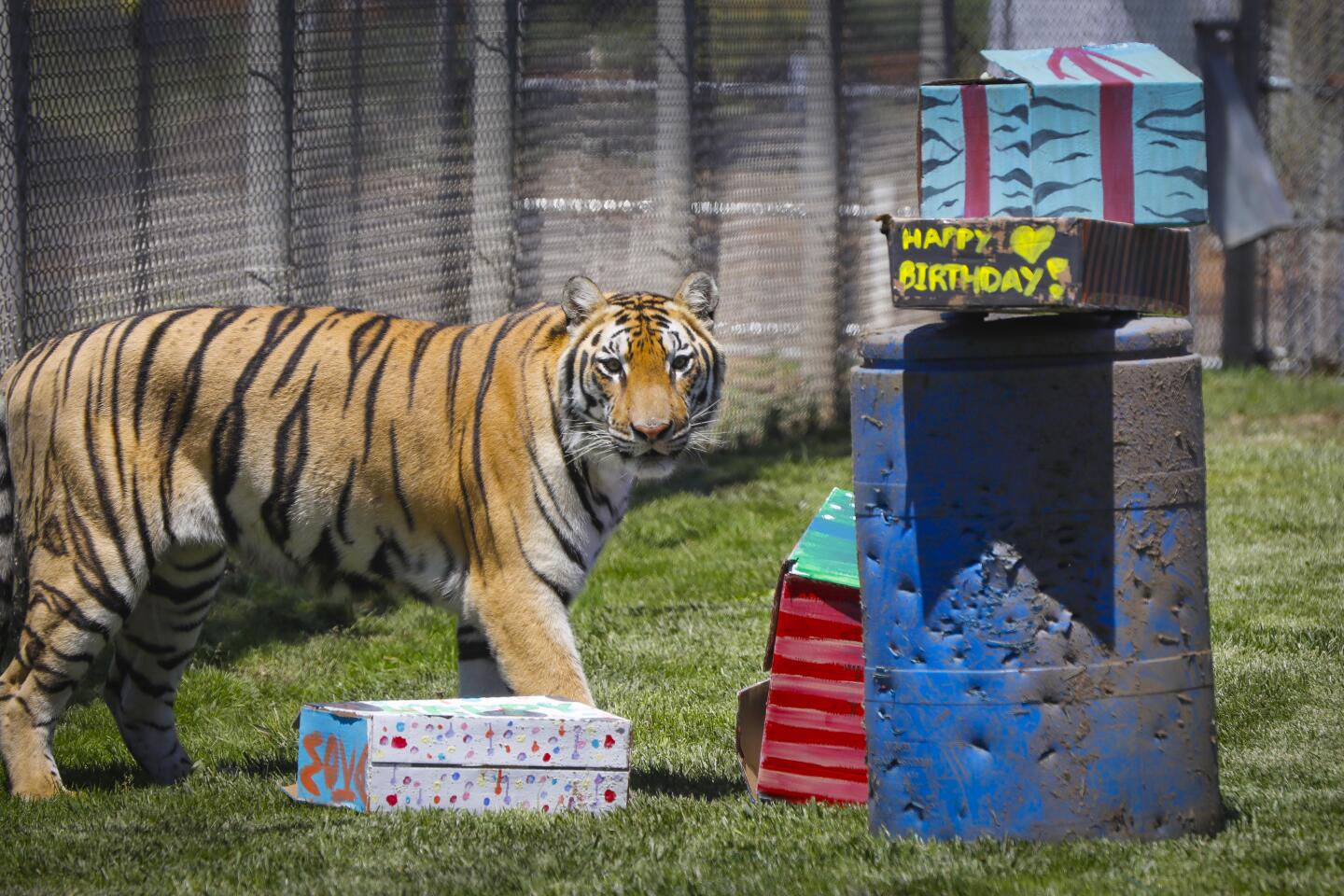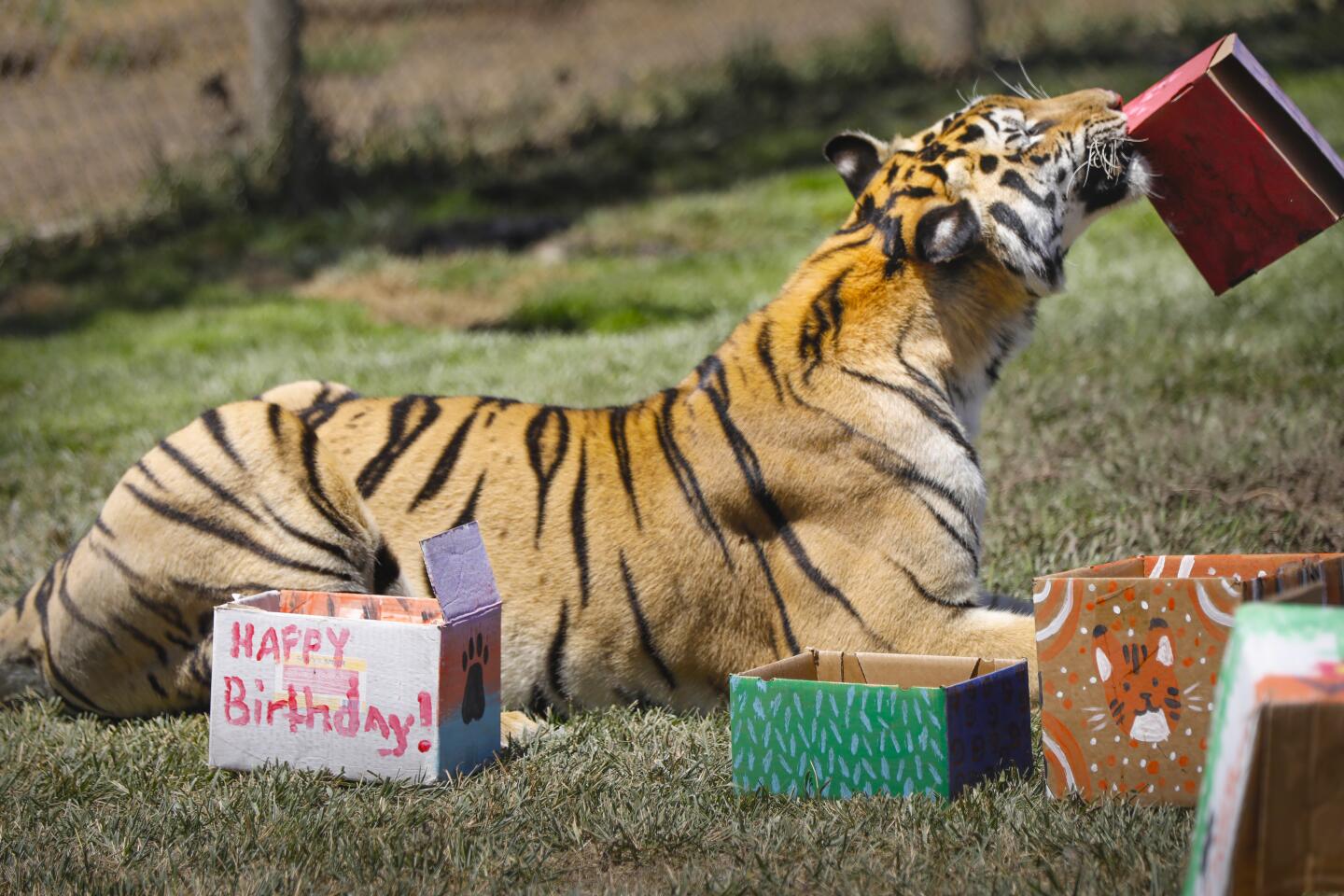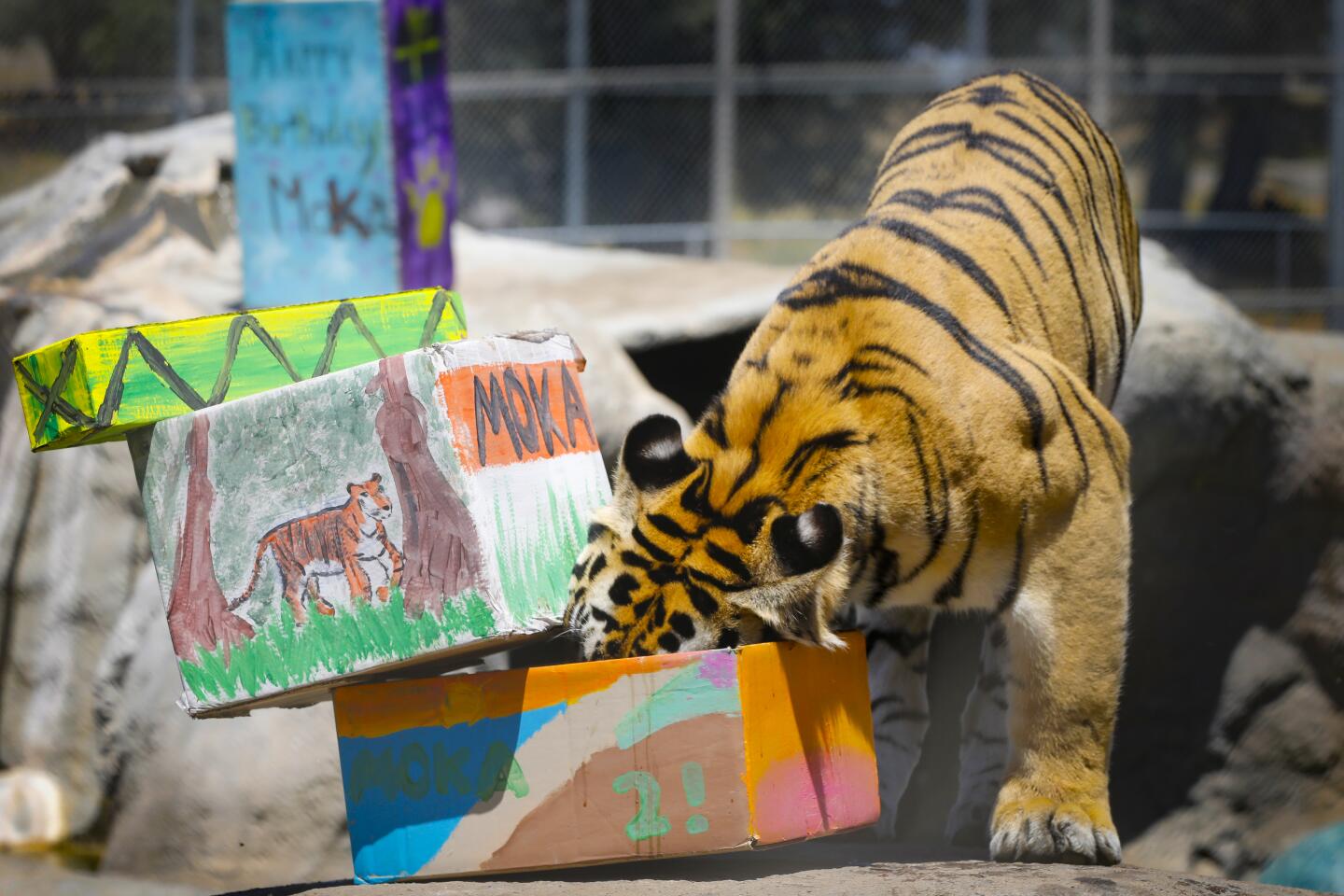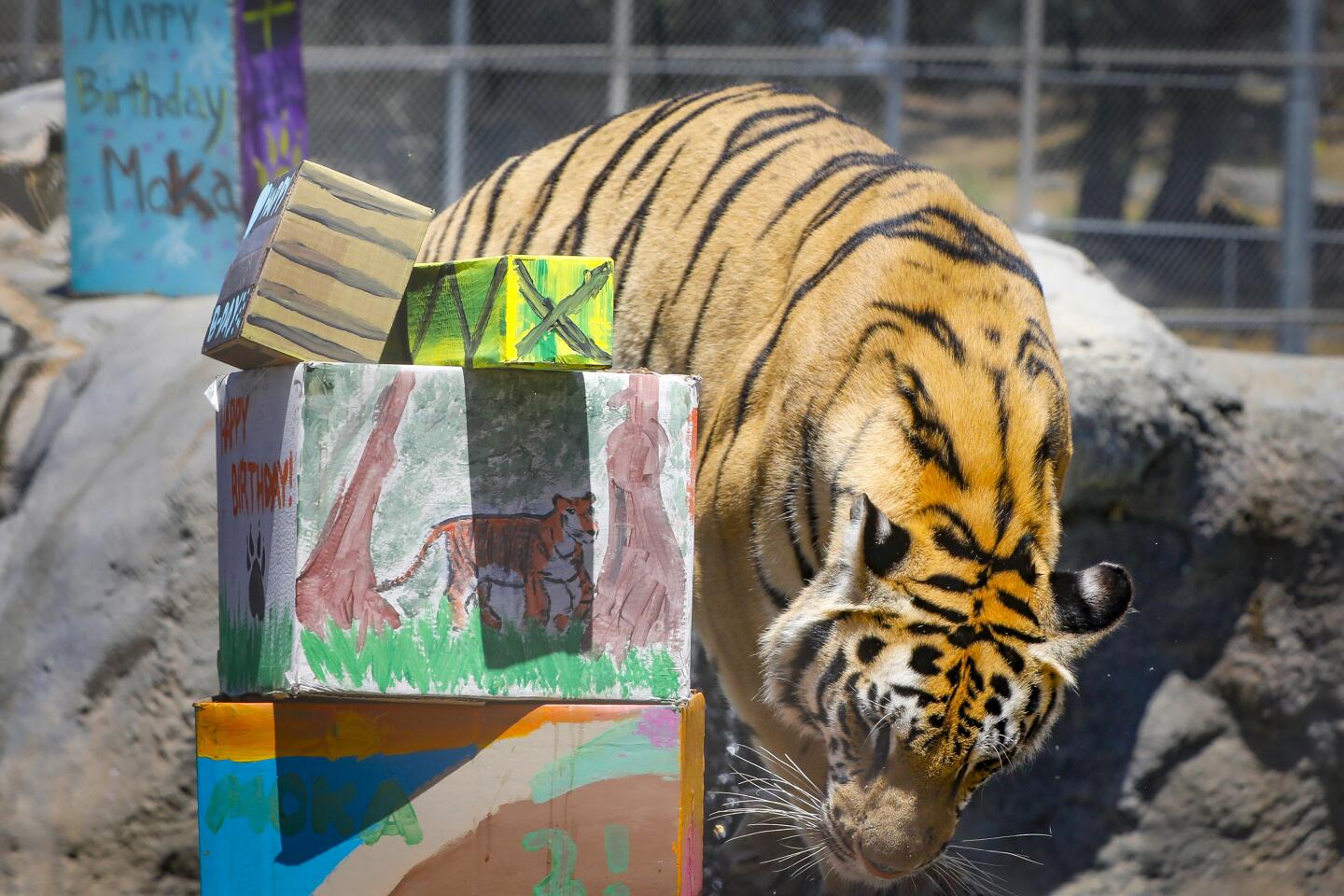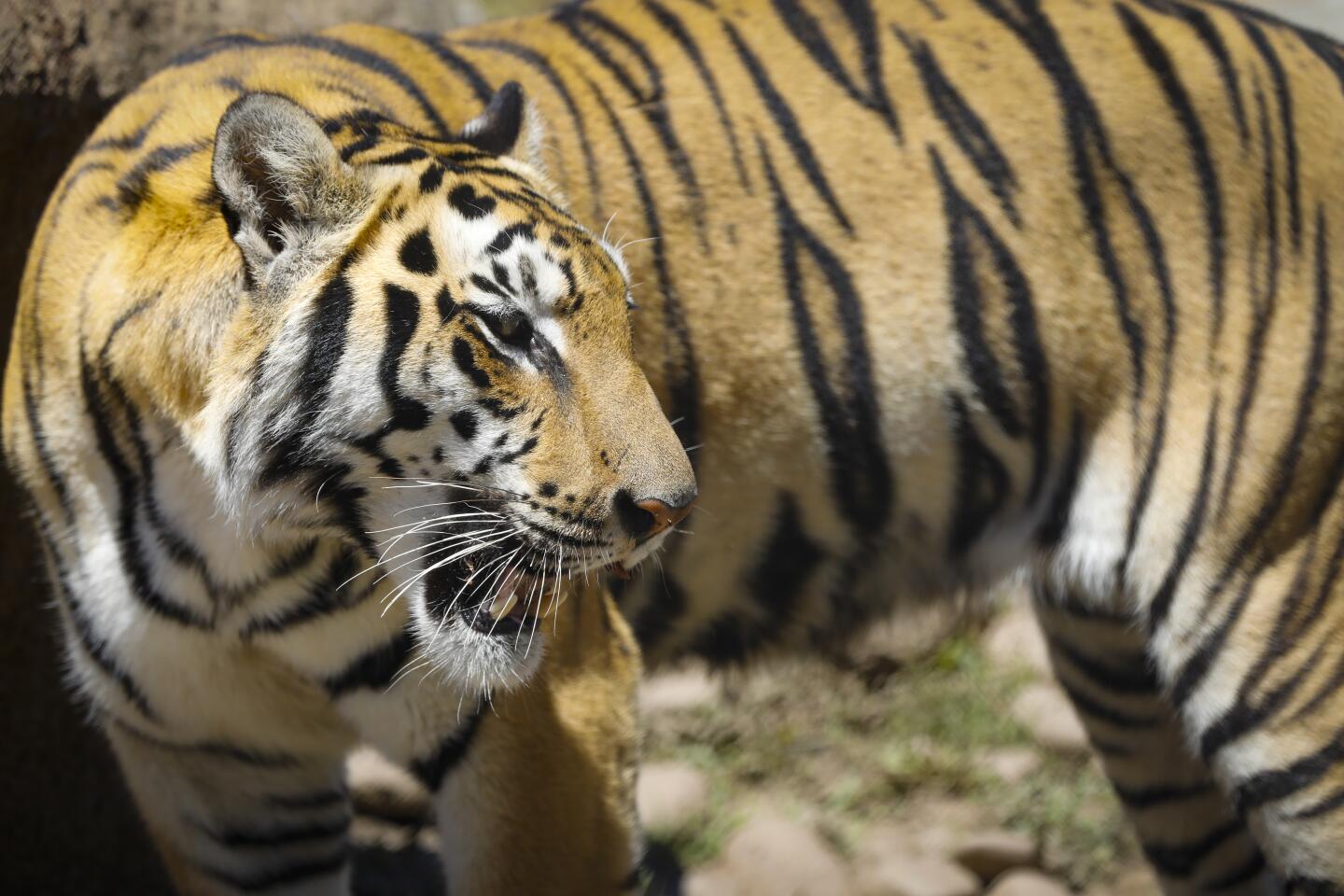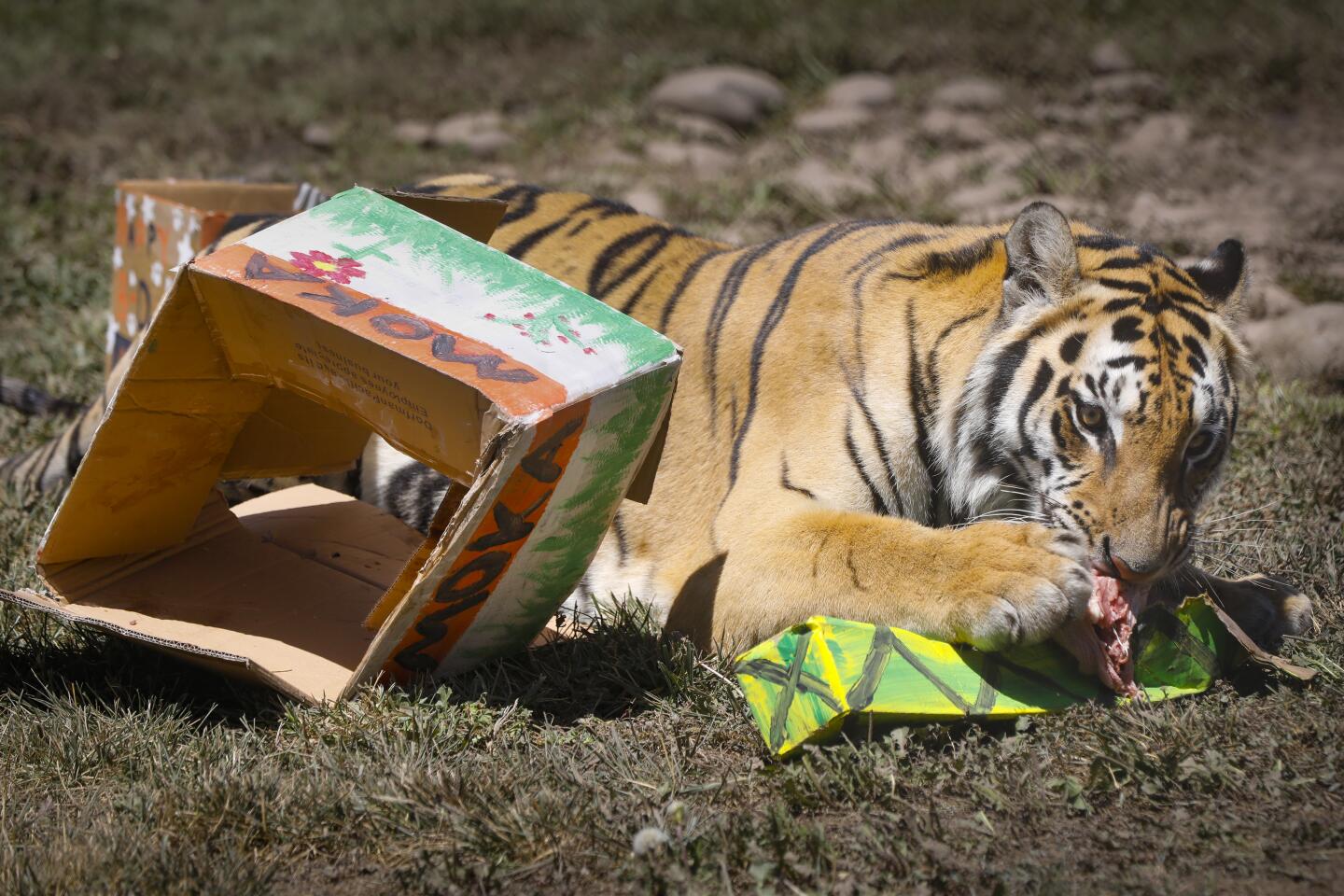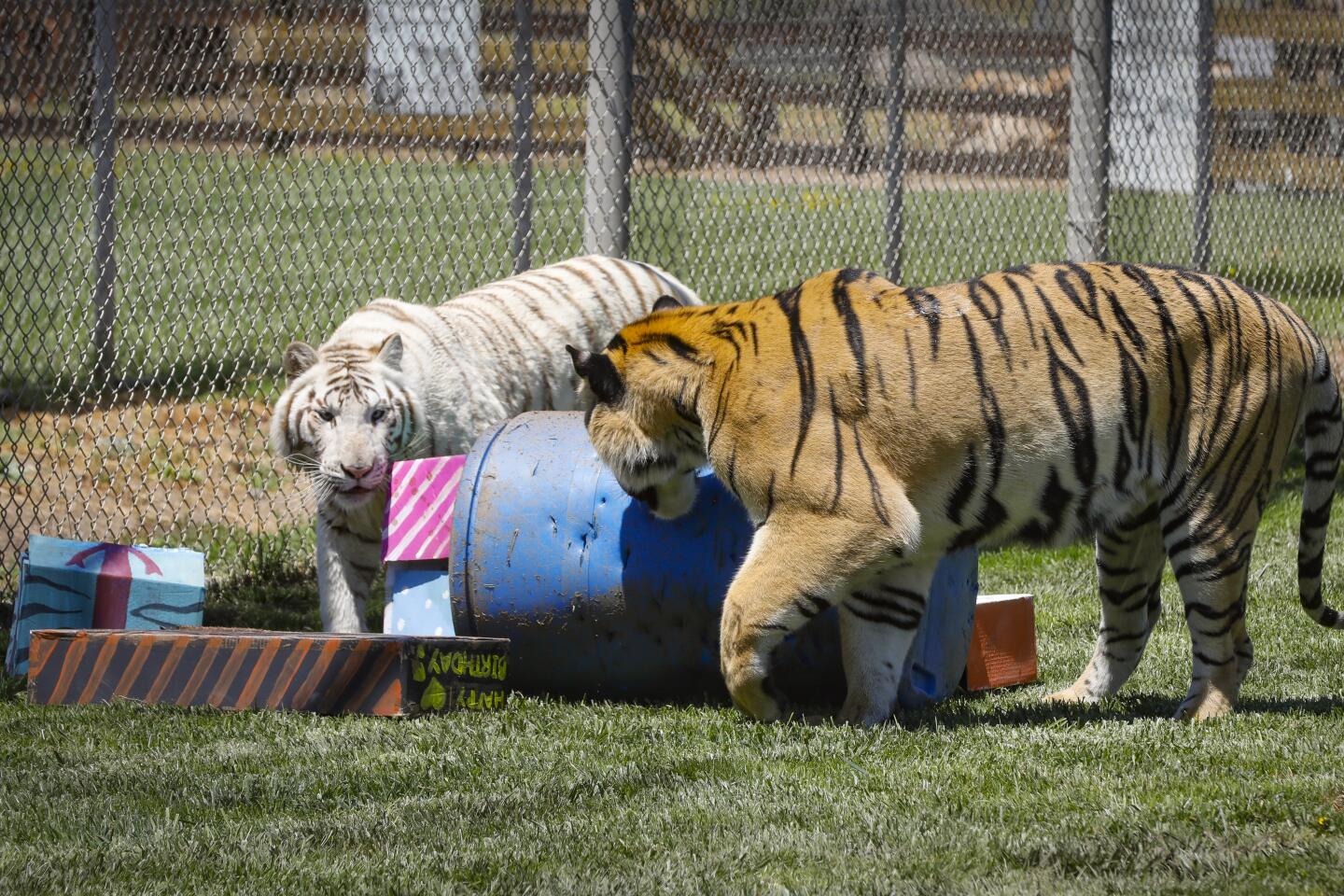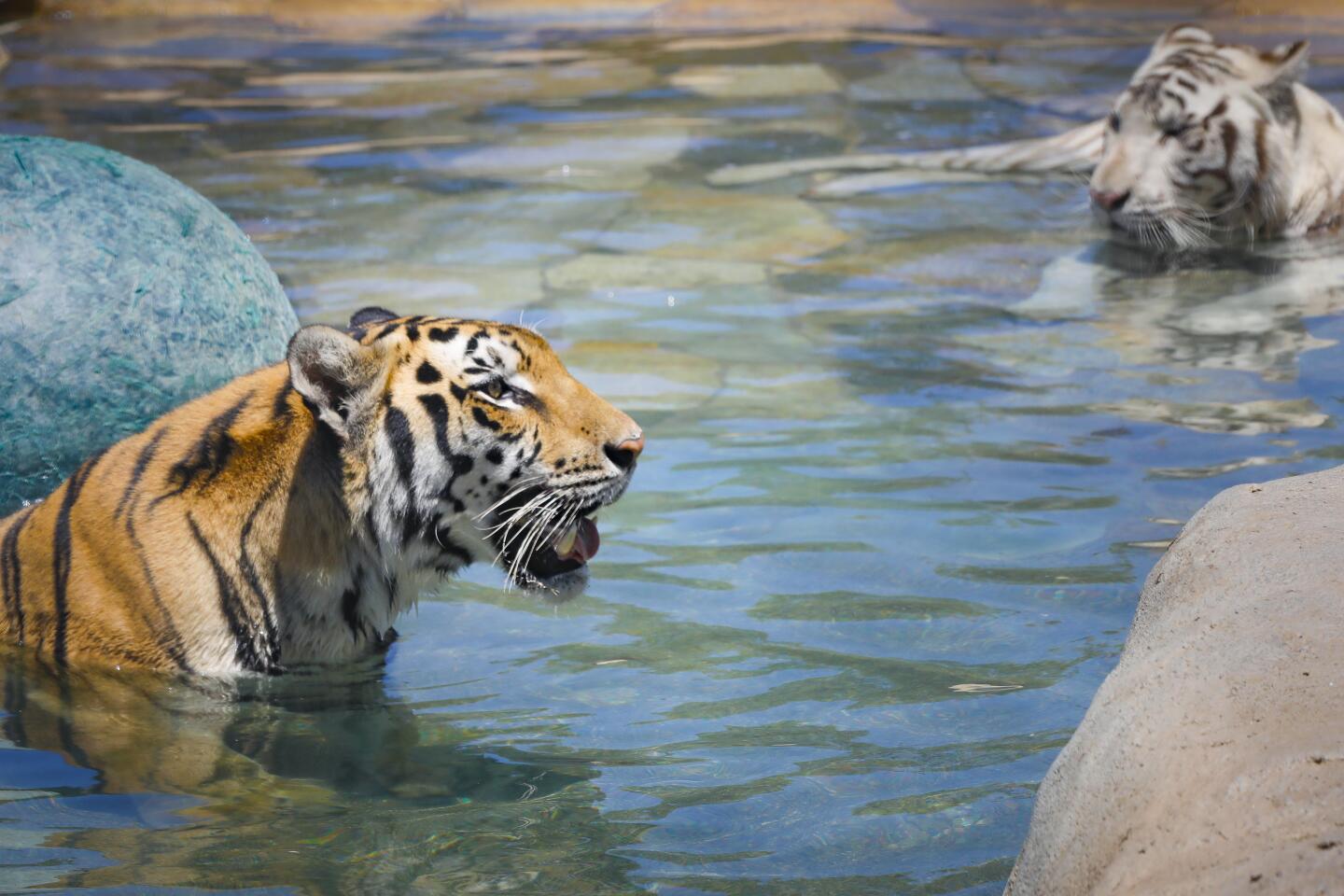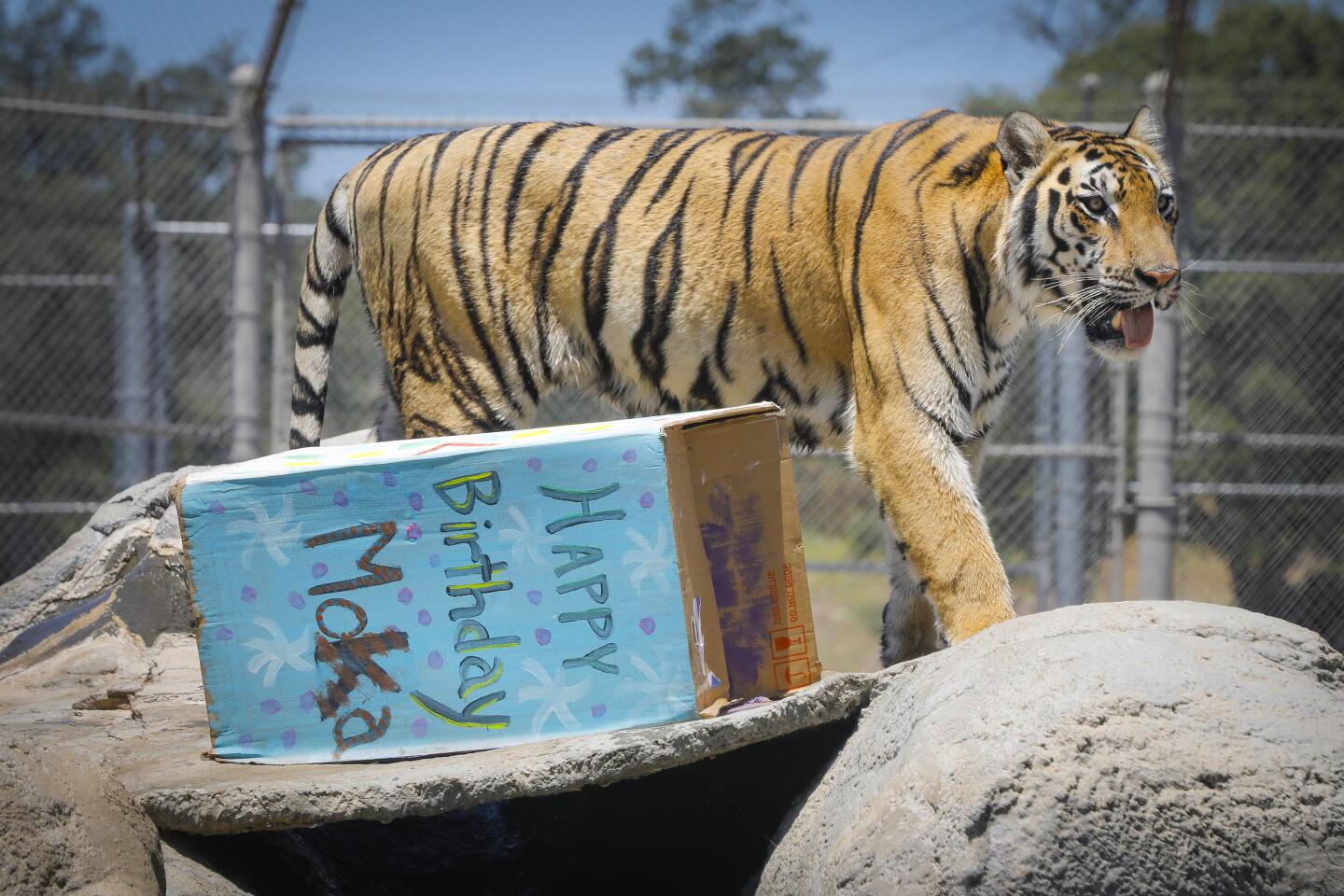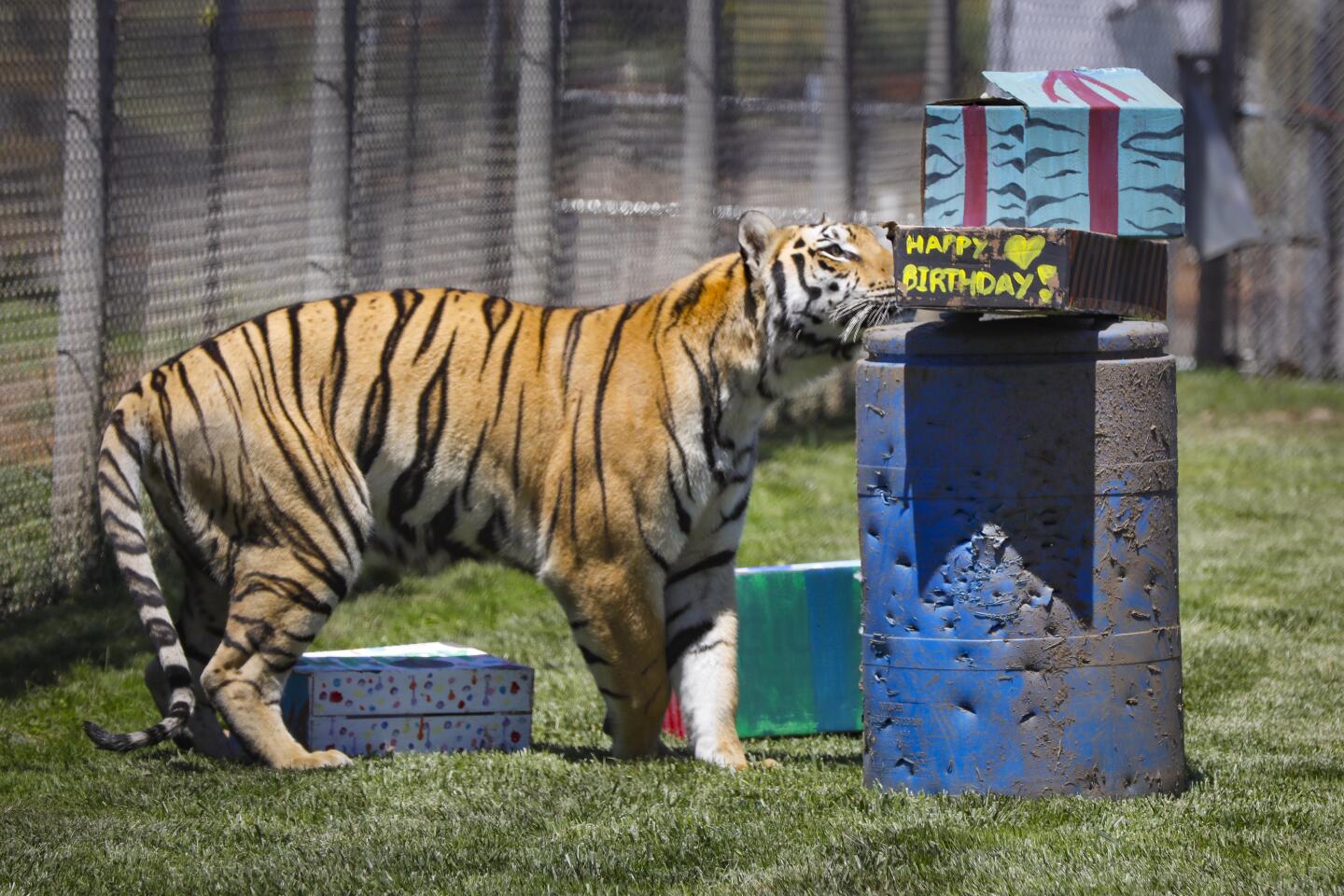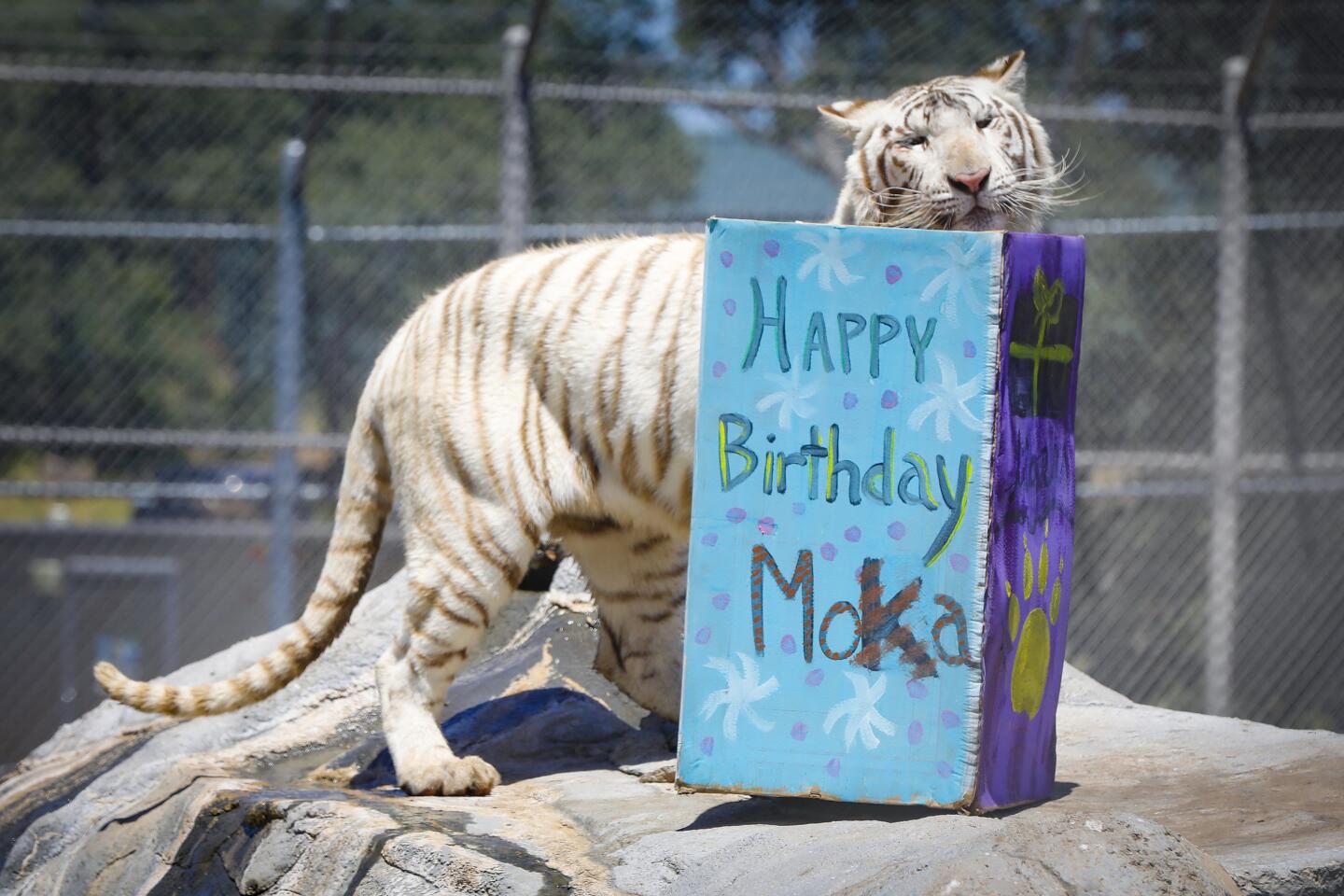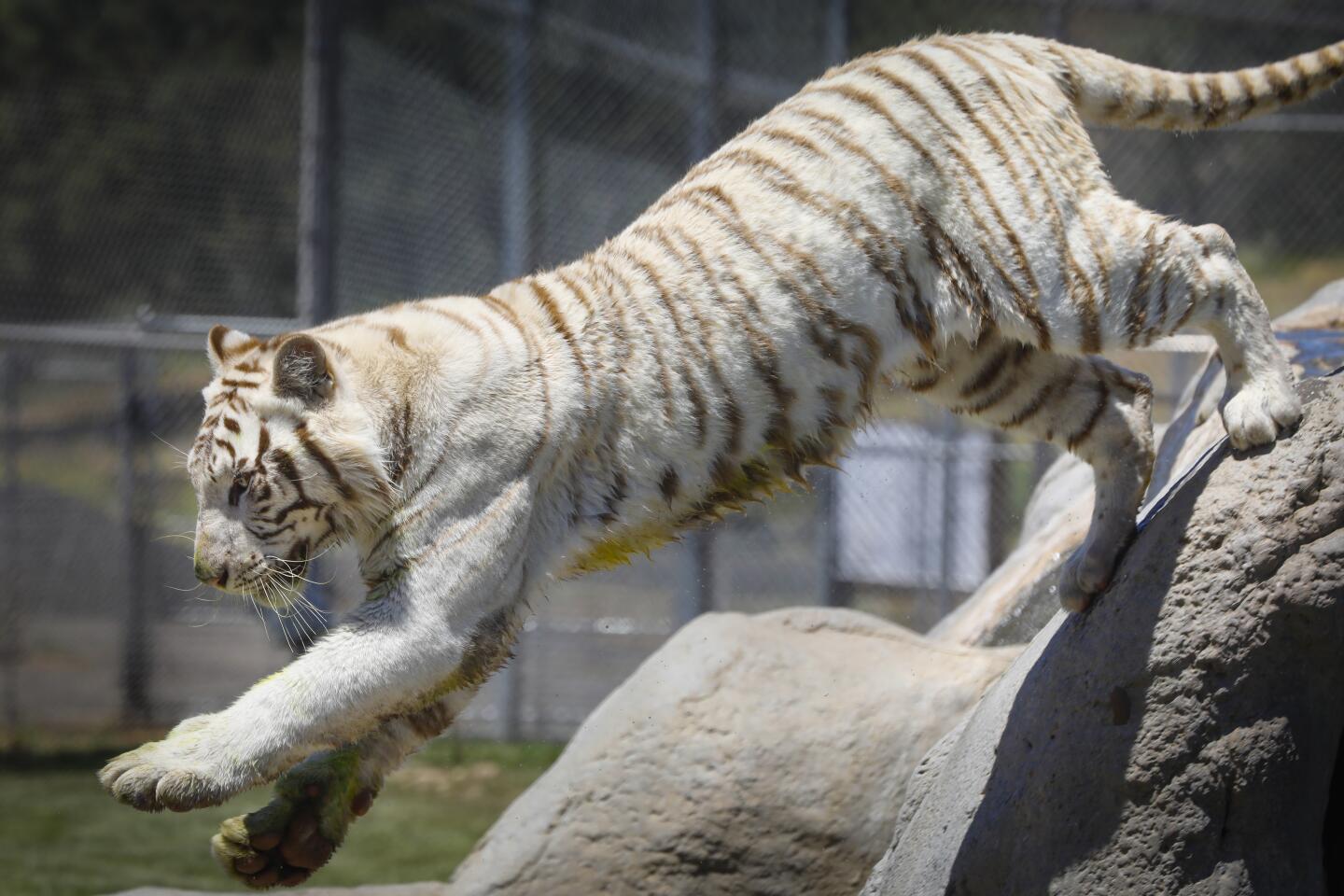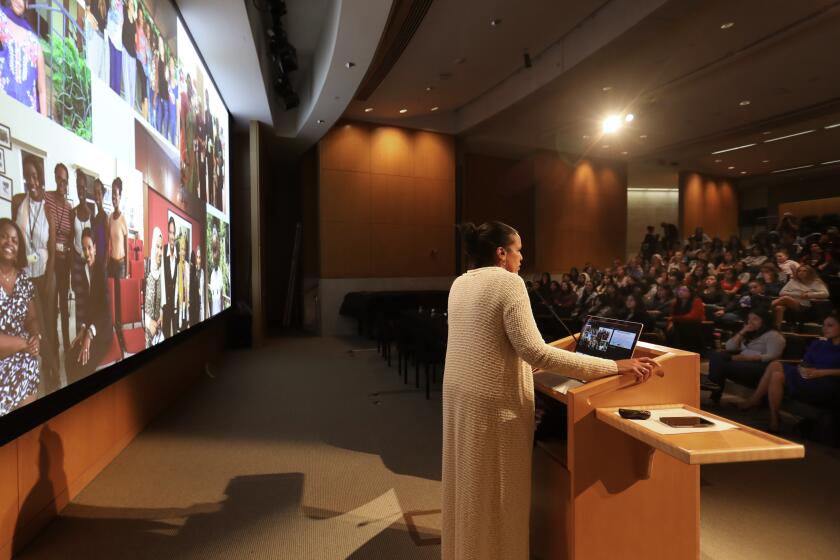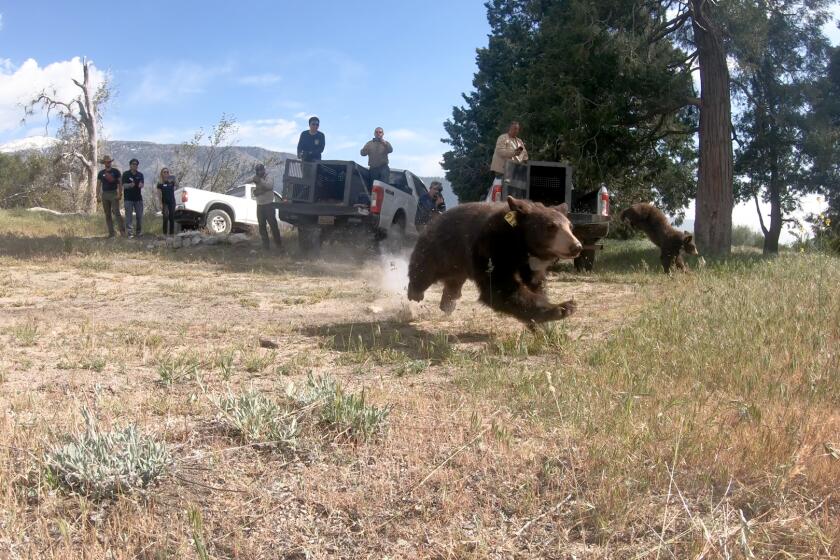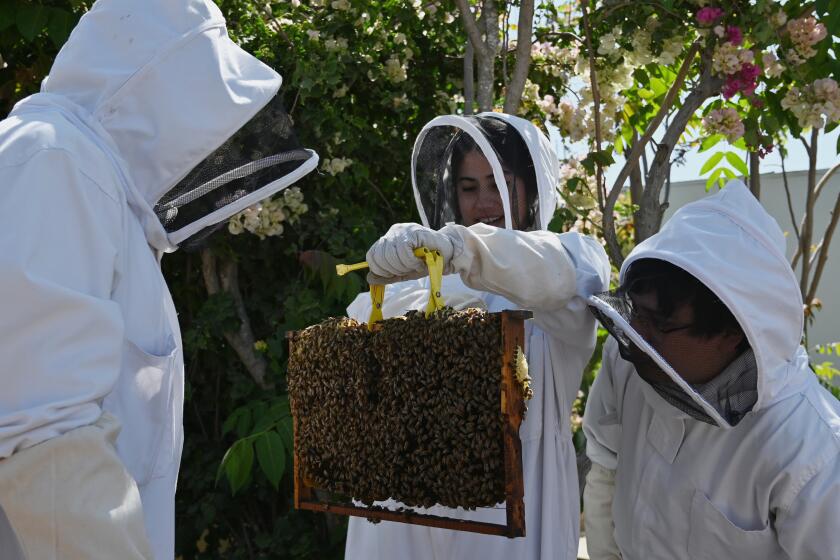Rescued from captivity, Moka the tiger celebrates his first year at Alpine animal sanctuary
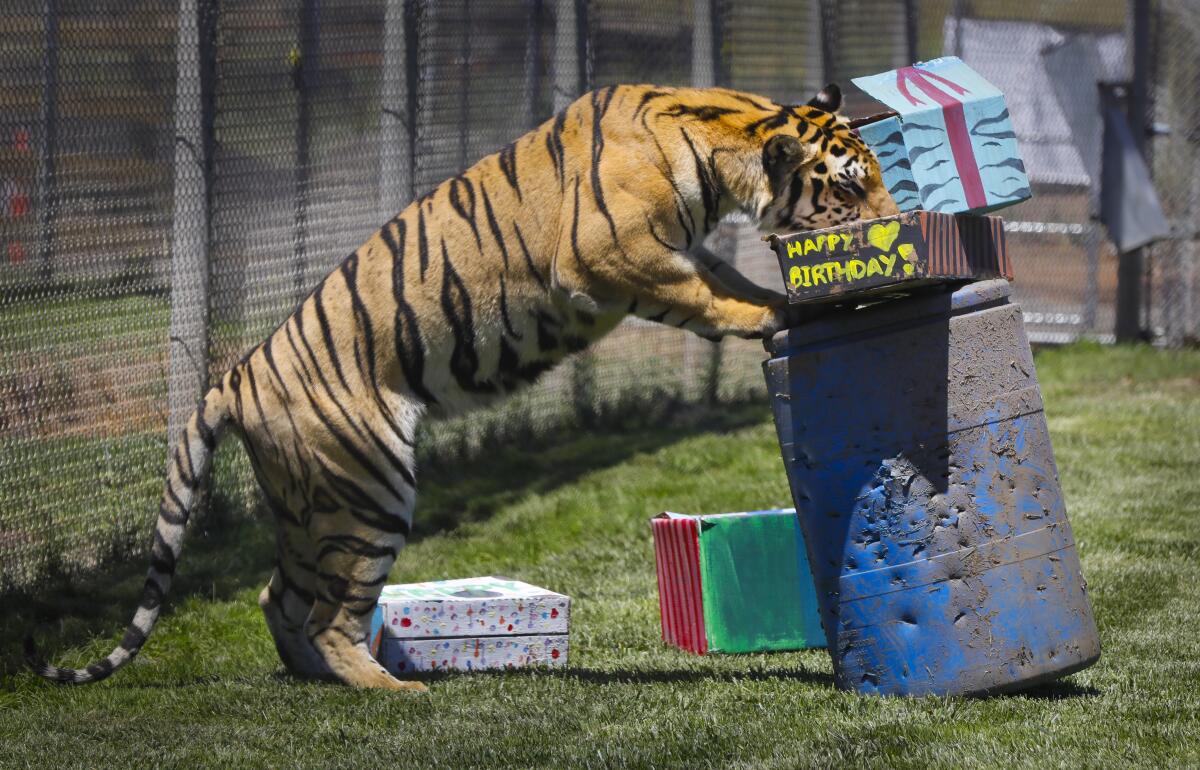
Seized from a smuggler at the U.S.-Mexico border, the young tiger is healthy and enjoying life at Lions Tigers and Bears
Moka was a sick, scared tiger cub when he was rescued from a smuggler at the U.S.-Mexico border late in 2017. Now he has bloomed into a strapping young male.
On the anniversary of Moka’s arrival at an animal sanctuary in Alpine, scores of well-wishers gathered to sing “Happy Birthday” to the tiger whose sad tail — er tale — of neglect had a happy ending.
On Saturday, Moka and his lady friend Nola leaped around their enclosure at Lions Tigers and Bears, the 93-acre nonprofit sanctuary that took them both in. They tore to pieces colored boxes with treats inside. These were labeled as Moka’s presents, but Nola took no heed of distinctions.

Lions Tigers and Bears celebrates birthdays on the date the animals arrived, because their real dates of birth often aren’t known. These rescues also typically had hard times before their arrival at the sanctuary, which cares for the animals the rest of their lives.
The weather was dry and scorching, and Moka and Nola cooled off by taking dips in a pond or lounging in the shade.
Moka was housed with Nola to provide companionship. Shy when he arrived, Moka was coaxed out of his shell by Nola, who likes to playfully rough-house with him.
“They can’t live without each other,” said Bobbi Brink, founder of Lions Tigers and Bears.
Nola fears nothing, and Moka takes his cues from her, Brink said.
But Moka knows how to assert himself. When Nola got too near a birthday present Moka was playing with, he gave a loud roar.
Nola backed off. She later found another present Moka had neglected, and shredded it with gusto.
This is a far better life than either tiger was originally fated to have. Both were bred in captivity to be sold for profit. These and other big cats are typically given poor diets, kept in inadequate enclosures, and fail to receive adequate veterinary care.
But now Moka and Nola are both healthy, Brink said.
When he was rescued, Moka weighed 10 pounds as a weeks-old cub. When he arrived a year ago from the San Diego Zoo, he weighed 132 pounds, she said. Now he weighs 320 pounds. He will continue to put on weight over the next few years until he is full-grown.
Moka was originally believed to be a Bengal tiger when he was confiscated at the San Ysidro Port of Entry from the smuggler. But he and Nola are actually what is known as “generic tigers,” Brink said. These are of an indeterminate or mixed background, and such are no use in preserving the bloodlines of endangered subspecies.
Lions Tigers and Bears doesn’t breed any of their animals, nor does it permit guests to touch them. These are key characteristics of legitimate sanctuaries, Brink said.
Nola is a white tiger, typically produced by inbreeding. That means she’s likely to have genetic problems, Brink said. But she’s now free of the parasitic infections she carried when she arrived in early 2018.
Moka’s own health issues were taken care of by the San Diego Zoo Safari Park, where he was originally brought by the U.S. Fish and Wildlife Service. In early March of 2018, Moka fell seriously ill with an intestinal obstruction. He underwent surgery and fully recovered.
When Moka’s generic status was established, the zoo realized he could not stay there permanently.
That’s when the U.S. Fish and Wildlife Service asked Lions Tigers and Bears to take him in, Brink said.
Lions Tigers and Bears offers tours by appointment. The cost defrays the expenses of keeping these animals. For more information, go to lionstigersandbears.org.
Get Essential San Diego, weekday mornings
Get top headlines from the Union-Tribune in your inbox weekday mornings, including top news, local, sports, business, entertainment and opinion.
You may occasionally receive promotional content from the San Diego Union-Tribune.
